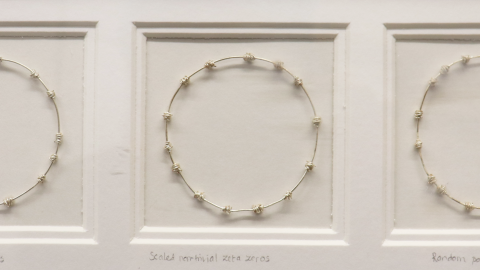16:00
A Forward-Backward Approach to Endogenous Distress Contagion
Abstract
In this talk, I will introduce a dynamic model of a banking network in which the value of interbank obligations is continuously adjusted to reflect counterparty default risk. An interesting feature of the model is that the credit value adjustments increase volatility during downturns, leading to endogenous distress contagion. The counterparty default risk can be computed backwards in time from the obligations' maturity date, leading to a specification of the model in terms of a forward-backward stochastic differential equation (FBSDE), coupled through the banks' default times. The singular nature of this coupling, makes a probabilistic analysis of the FBSDE challenging. So, instead, we derive a characterisation of the default probabilities through a cascade of partial differential equations (PDE). Each PDE represents a configuration with a different number of defaulted banks and has a free boundary that coincides with the banks' default thresholds. We establish classical well-posedness of this PDE cascade, from which we derive existence and uniqueness of the FBSDE.
Please join us for refreshments outside the lecture room from 15:30.


